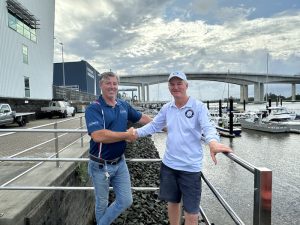Australia Approves Renewable Energy Link to Singapore – Thailand Business News

- by Admin
- August 28, 2024

The Australian government will build a 12,400-hectare solar farm transmitting energy to Singapore, delivering 6GW per year. It will supply 15% of Singapore’s electricity. Operations begin early 2030s.
Australian Solar Farm Project
The Australian government has greenlit a 12,400-hectare solar farm in the Northern Territory aimed at delivering energy to Singapore. This project, known as the Australia-Asia PowerLink, is set to become the largest solar precinct globally, generating 6GW of electricity annually. Of this, 4GW will serve industrial clients in Darwin, with the remaining 2GW meeting around 15 percent of Singapore’s electricity needs. The final investment decision is anticipated by 2027, and electricity supply is expected to commence in the early 2030s.
Singapore’s Renewable Energy Solutions
Due to limited land, Singapore faces challenges in developing large-scale renewable energy projects like solar farms. While solar energy is utilized, the high demand for land makes it more costly than in countries with more space. Innovative solutions like floating solar farms and urban solar panels also come at higher costs than traditional solar initiatives.
Operational Costs in Singapore
The operational and maintenance costs of Singapore’s energy infrastructure are also high. Gas power plants in Singapore must adhere to strict environmental and efficiency standards, which necessitates costly maintenance and skilled labor. These factors contribute to the overall expense of power generation in the city-state.
Read the original article : Australia Approves Renewable Energy Link to Singapore
This article was first published by ASEAN Briefing which is produced by Dezan Shira & Associates. The firm assists foreign investors throughout Asia from offices across the world, including in in China, Hong Kong, Vietnam, Singapore, India, and Russia. Readers may write to [email protected].
The Latest News
-
December 25, 2024Australia to bat first at MCG in Boxing Day heat
-
December 25, 2024Golf Participation in Australia Hits New Heights – APGC
-
December 25, 2024Boxing Day Test: Australia batting first against India
-
December 25, 2024Live: Fearless Konstas makes wild start to Test debut as Australia bats first at MCG
-
December 25, 2024Boxing Day Test 2024: Australia vs India fourth men’s cricket Test, day one – live updates



